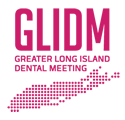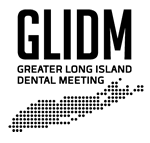Skillfully Responding To Conflict In Work And In Life
Through The Use Of Basic Mediation Techniques
COURSE CODE: 216E
SPEAKERS: Shahram (Sean) Shekib, DDS, JD &
Martin Applebaum, JD
DATE: Wednesday, April 3rd – 6:00 pm to 9:00 pm
CREDIT HOURS: 3

Shahram (Sean) Shekib, DDS, JD
Dr. Sean Shekib is currently serving as the President of the New York State Academy of General Dentistry, also receiving his Juris Doctor degree from Mitchell Hamline School of Law, making him one of the rarest of species – a holder of dual degrees in Dentistry and Law.
After completing his undergraduate degree at Yeshiva University, Sean went on in 1996 to graduate from Columbia University College of Dental Medicine. Subsequently, he completed a General Practice Residency at Flushing Hospital and pursued coursework in the areas of lasers, implants, aesthetics, full mouth restorations and orthodontics.
Over the years, Sean has been awarded fellowships by the American College of Dentists, the Pierre Fauchard Academy, the American Academy of Dental Science, and the International College of Dentists. He is also a Clinical Evaluator at Clinical Research Associates (“CRA”), and a Clinical Assistant Professor at Columbia University College of Dental Medicine. He is also a recipient of the President’s Lifetime Achievement Award, granted by the Office of the President of the United States, for his lifelong commitment to building a stronger nation through volunteer services.
In life and work, Sean remains deeply committed to resolving human conflict in all its forms. Serving as a member of the Peer Review Committee in the Second District Dental Society, Sean helped to resolve disputes between health care providers and patients. Out of this experience, Sean sought to harness his technical expertise and legal training to a vision of empowering people to resolve their own disputes through mediation, receiving his Mediation Certificate through the Mitchell Hamline School of Law and becoming a Certified Mediator in New York State, mediating across a wide variety of disputes.
 Martin Applebaum, JD, MA
Martin Applebaum, JD, MA
After receiving a BA from SUNY at Stony Brook and a MA degree in Asian Studies from the University of Hawaii, Martin Applebaum spent the next five years in the ancient Japanese capital of Kyoto, continuing his studies in Japanese philosophy and religion and practicing Zen meditation (which he has continued to do for over 40 years) while teaching English at Doshisha University, Shiga National University and as a consultant with the Kyoto City Board of Education.
Upon his return to the United States, Martin graduated from Georgetown Law Center and practiced with the law firm of Weil, Gotshal & Manges, specializing in international trade law. Subsequently, he worked as the general manager of the East Asian operations of a U.S. educational software company and as a business development consultant assisting American companies seeking access to the Pacific Rim. He has guided artists seeking grants through the often formidable grant writing process.
Looking to get to the heart of the matters of conflict and communication and to empower those in dispute to come to their own resolutions, Martin took up the practice of mediation, starting as a volunteer mediator with Community Mediation Services in Queens, NY. He has now mediated over three hundred and fifty cases in areas involving contract and business disputes, family issues, including custody and visitation, elder care and Surrogate Court estate matters, property disputes, landlord/tenant matters, special education issues, and school conflict. He has also offered conflict coaching in many of these areas.
He currently offers mediation services through his firm, Attune Mediation, and is a member of the Mediation Panel of the New York City Family Courts.
Course Description:
Conflict is a fundamental aspect of life. We can choose to deepen conflict by hardening into it or we may see conflict as an opportunity to creatively work through often difficult disputes in order to reach workable solutions and even find mutual understanding. Part One of this seminar will provide an overview of mediation, including styles of mediation, and comparisons to other forms of conflict resolution. Part Two of the seminar will introduce practical mediation techniques that may be used to defuse emotional reactivity and closed-mindedness and to create a space for dialogue and resolution. Participants will not only receive valuable conceptual tools but will, through hands-on exercises, have an opportunity to put theory into practice.
More specifically, the seminar will provide participants the hands-on opportunity to learn how to directly foster a space for dialogue and resolution by:
1) Empowering people to directly resolve problems
2) Defusing anger and defensiveness
3) Bringing to awareness unconscious assumptions and bias
4) Going beneath the surface of positional arguments
5)Validating the values each person in conflict holds
6) Bringing these values into dialogue
7) Finding common ground through creative problem solving
The participants will learn proven mediation techniques that support these objectives, applying the science on emotional reactivity through the following skills:
1. Active listening
2. Restating what the speaker has expressed
3. Reframing what is being expressed by the speaker in terms of underlying
needs/values/goals.
4. Open and directed questioning
5. Summarizing
6. Non-violent communication
7. Creative problem solving
The participants will have the opportunity to explore the above through guided role-play
exercises.
Participants will learn and practice mediation skills that:
1) Empower people to resolve their own problems;
2) Defuse anger and defensiveness;
3) Bring to awareness unconscious assumptions and bias;
4) Go beneath the surface of positional argument to validate the values each person in conflict holds;
5) Bring these values into dialogue, fostering deeper, open communication; and
6) Dramatically increase the probability of finding common ground through value-based creative problem solving.

